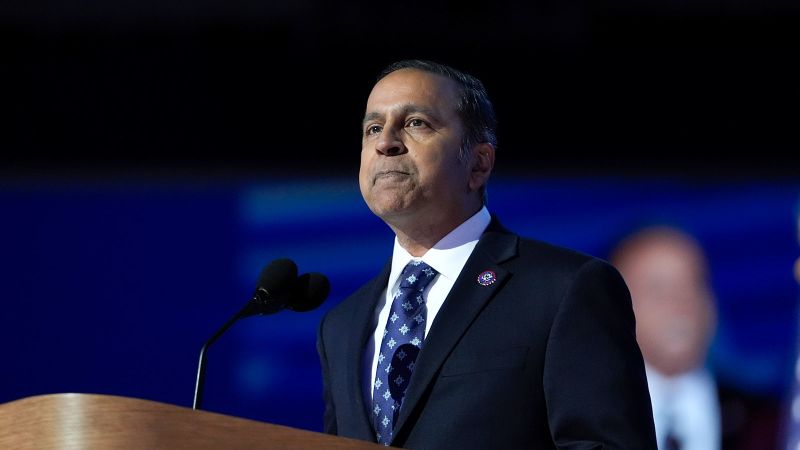The political landscape in Illinois is heating up as various candidates vie to replace longtime Senate Minority Whip Dick Durbin. The primary race has gained momentum, especially with Representative Raja Krishnamoorthi announcing his candidacy. His entry marks a significant turn, as this forthcoming election represents the first competitive Democratic primary in the state since Tammy Duckworth won in 2016, an event that saw her defeating opponents by considerable margins. However, the current field of candidates suggests this race could be more contentious, reflecting divisions within the Democratic Party and a struggle for a unified message as they aim for a comeback in the congressional elections set for 2026.
Krishnamoorthi, who has held a seat in the U.S. House since 2017, describes himself as a staunch opponent of Donald Trump, proclaiming that he stands up against bullying. He articulates a need for Democrats to not merely defend the status quo but to push for progressive change. His competitive edge in the race is underscored by significant financial backing; he enters the primary with around $19 million in cash, having raised nearly $3 million in just the first quarter of the year. His rivals include Rep. Robin Kelly, who has a war chest totaling $2 million, as well as Illinois Lieutenant Governor Juliana Stratton. Additionally, Rep. Lauren Underwood, another key figure who notably flipped her competitive seat in 2018, is also considering a run.
The financial stakes in this race could mark it as one of the most costly primaries within the upcoming midterm elections. As the Democratic Party grapples with how to regain meaningful control in Congress, this primary election’s outcome will likely signal to party members the direction they wish to take moving forward. Krishnamoorthi highlights the necessity for the party to solidify its economic messaging and reach out to constituents, suggesting that recent efforts have not sufficiently resonated with voters.
In a sign of the internal party dynamic, Krishnamoorthi has refrained from unqualified support of Senate Democratic Leader Chuck Schumer, illustrating possible rifts as he stresses the importance of discussing leaders’ priorities in a way that aligns with broader Democratic goals, particularly emphasizing economic empowerment for constituents. This criticism showcases the broader conversation within the party leadership about direction and strategy.
His competitor, Lt. Gov. Juliana Stratton, has secured an endorsement from Illinois Governor J.B. Pritzker, whose wealthy background and extensive network could give her a critical advantage in this tight race. Pritzker’s financial support is anticipated to bolster her campaign, drawing attention to the strategic resources necessary for success in this highly-competitive primary.
Moreover, the 80-year-old Dick Durbin has hinted at his departure from the political arena, leaving a significant void. His remarks indicate that he may not endorse a candidate outright, yet his influence in Springfield remains palpable, and he acknowledges that other statewide officials may also enter the fray. Krishnamoorthi has expressed a desire to earn support from both Durbin and Pritzker while asserting the importance of voters deciding the next senator.
Concerning policy and campaigning, Stratton argues for the necessity of new perspectives in Washington. In her view, fresh voices are crucial for driving change and countering entrenched political interests effectively. Krishnamoorthi positions himself as ready to battle Trump, citing his previous impeachment votes against the former president as evidence of his readiness to confront powerful adversaries. His insistence that he is the best-prepared individual for the task at hand illustrates the competitiveness of the primary.
Representative Kelly, another contender, leverages her extensive advocacy for vital social issues, showcasing her long-standing commitment to gun safety and maternal health. As she enters the tactical fray of this primary, she asserts that proven leaders are needed in this moment of political upheaval, one where she vows to challenge not just the Trump agenda but also the heavy influence of lobbyists.
In summary, the race for Illinois’ Senate seat is shaping up to be a defining moment for the Democratic Party as it navigates internal divisions and seeks a cohesive path forward in the face of potential GOP challenges. With multiple candidates gathering resources and support, their respective campaigns will likely provide clues about the future trajectory of Democratic politics in the state and nationwide.



